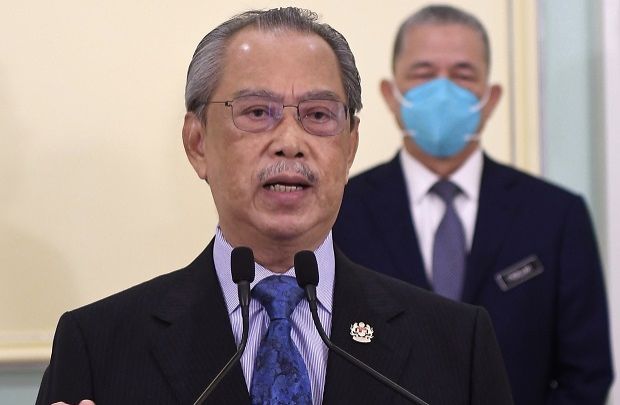As Tan Sri Muhyiddin Yassin has stepped down as Prime Minister, The Coalition for Clean and Fair Elections (BERSIH 2.0), and the undersigned organisations urge the contenders to fill his vacancy to pursue political stability by offering multi-partisan governance and institutional reforms.
The endless political machination due to winner-takes-all politics in a de facto hung parliament for the past one and a half year must now end to enable a more effective governance of health and economy.
The new Prime Minister must quickly convene a special meeting and table a motion of confidence in himself to prove his majority.
To fulfill the demand of Article 43(2)(a) of the Federal Constitution “to command the confidence of the majority of the [House of Representatives]”, the Prime Minister-designate may form a coalition government or a minority government with unambiguous support from enough Opposition MPs on Confidence and Supply Agreements (CSAs).
However, to ensure broad-based support for government policies, even if the new government has a simple majority on its own, it should reach out to the official Opposition and other opposition parties to negotiate conditional support on CSAs.
In formulating a cross-party agreement committing as many parties and MPs as possible, the 7-point reform package made by Tan Sri Muhyiddin Yassin on August 13 can serve as a good reference but be expanded to cover more aspects of institutional reforms.
We propose for the following 10 points to be considered in a “Cross-party Political Stability Pact” to be covered by the various CSAs between the new Government and the opposition parties (detailed in Appendix):
1. A tripartite Federal-State Council (FSC) on Health and Economy consisting of equal numbers of members from Federal Government, Federal Opposition and the 13 State Governments, assisted by state officials and experts to coordinate key decisions on pandemic and economy.
2. Term limit for Prime Minister.
3. A Cabinet Manual that supplements the Federal Constitution to codify constitutional conventions and governmental operations including government formation, caretaker government and Parliamentary Opposition Leader and shadow cabinet.
4. Parliamentary reform that includes prioritization of no-confidence motion, reduction of Prime Minister’s and Speaker’s agenda setting powers, extensive and inclusive Parliamentary Special Select Committees (PSSCs), pre-tabling consultation on bills and budgets and enactment of Parliamentary Service Act, and equitable Constituency Development Fund (CDF).
5. Reform of Attorney-General Chambers (AGC), Malaysian Anti-Corruption Commission (MACC) and Inland Revenue Board (IRB) to end selective prosecution and conflict of interest.
6. Advancing voters’ supremacy through immediate implementation of UNDI18, Automatic Voter Registration, expansion of absentee voting facilities especially to out-of-region voters, and radio and TV campaigning available to all political parties and contestants.
7. Enactment of a Political Financing Act which includes for public financing of political parties.
8. Transfer of power in registering and regulating political parties from the Registrar of Societies to the Election Commission, which in turn should be made accountable to a PSSC.
9. Ground works for these medium-term reforms:
a. A Recall of Member of Parliament Act for all parliamentarians elected under the First-Past-The-Post system;
b. Introduction of Closed List Proportional Representation (CLPR) parliamentary seats with anti-hopping clause and gender quota; and,
c. The re-organisation of the Election Commission, including the creation of a Boundary Commission, to enhance its impartiality and professionalism.
10. A “Fixed Term Parliament Act” which specifies a proposed dissolution date of the 15th Parliament, which may be altered only with a two-third majority.
The 10-point Cross-party Political Stability Pact can be a feature in the upcoming Royal Address to bring Malaysians of different partisan, ethnic, religious and regional backgrounds together to save lives and livelihood.
We urge all contenders for the office of Prime Minister to commit to offer a vision of multi-partisan governance for all Malaysians, and not just horse-trading over numbers and positions. A short-sighted and self-serving government that perpetuates political stability would be ruthlessly punished by voters in the next election.
Statement issued by:
The Steering Committee of BERSIH 2.0
Endorsed by:
1. Angkatan Belia Islam Malaysia (ABIM)
2. Gabungan Bertindak Malaysia (GBM)
3. The Kuala Lumpur and Selangor Chinese Assembly Hall (KLSCAH)
Full Joint Statement:
20210816-New Government must pursue stability through multipartisan governance-1


 中文
中文 BM
BM